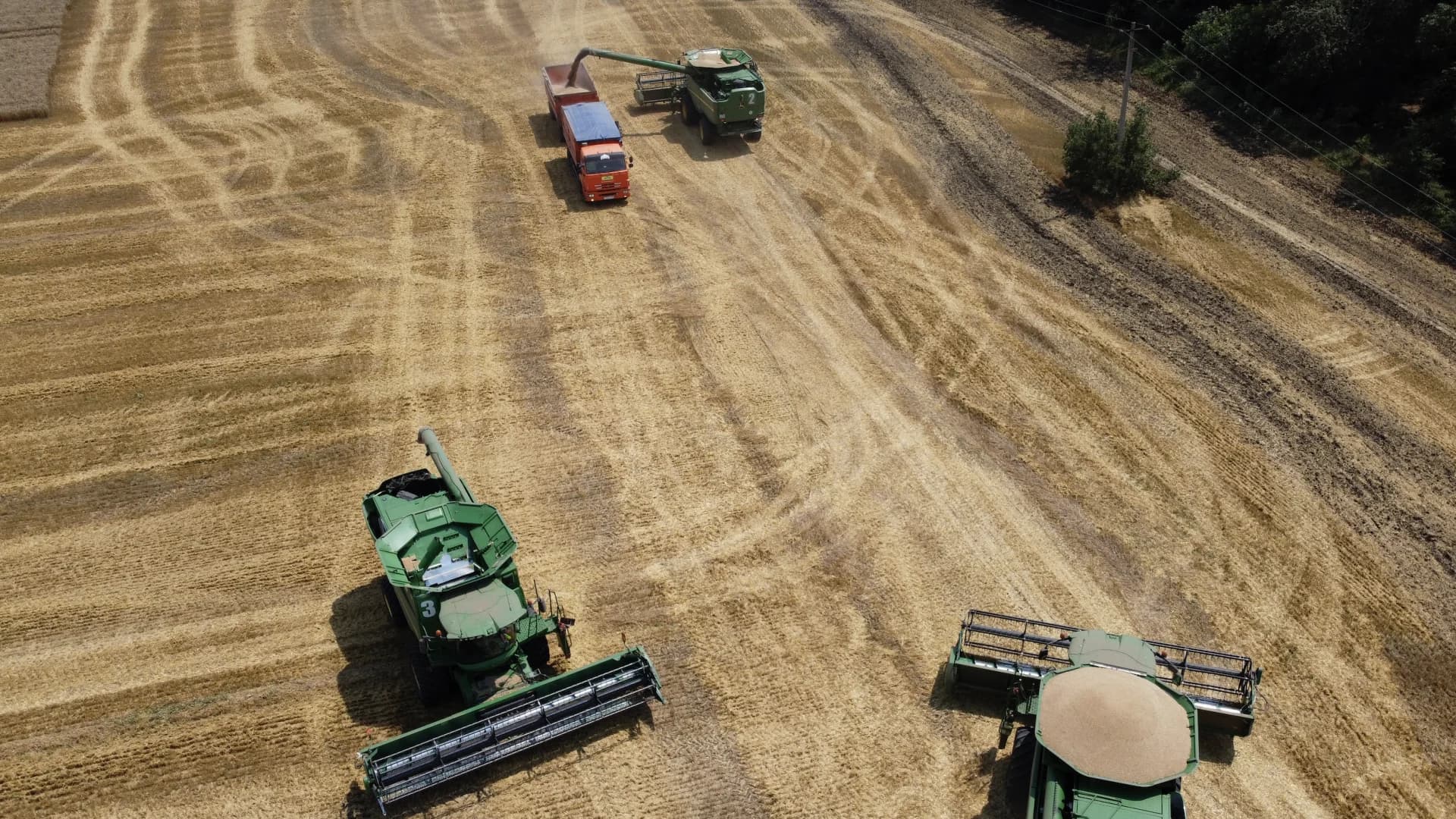More Stories

Russia's war in Ukraine will disrupt commerce and clog up supply chains, slashing economic growth and pushing prices sharply higher around the globe, the Organization for Economic Cooperation and Development warned Thursday.
In a grim new assessment, the 38-country OECD said that over the next year, the conflict would reduce gross domestic product — the broadest measure of economic output — by 1.08% worldwide, by 1.4% in the 19 European countries that share the euro currency and by 0.88% in the United States.
But government spending and tax cuts could partially limit the damage, the organization said.
The Russian invasion came at a time when prices were already surging and supply chains were snarled, fallout from an unexpectedly strong recovery from the coronavirus recession. The OECD, which in December forecast global inflation of 4.2% this year, predicted that the conflict would drive up prices by 2.47 percentage points worldwide over the next year.
“Just as the world economy appeared to be emerging from two years of the COVID-19 crisis, a brutal and devastating war has broken out in Europe,'' said Laurence Boone, the organization's chief economist. “We do not yet know how this will fully play out, but we do know this will hurt the global recovery and push inflation even higher.''
Russia and Ukraine account for less than 2% of global GDP but are heavyweight producers of specific commodities. Together, for instance, they export a third of the world’s wheat, raising concerns that countries like Egypt and Lebanon that rely on those affordable wheat exports for bread and other food staples could face shortages in the months ahead.
Russia supplies 27% of the European Union’s crude oil imports and 41% of its natural gas imports. Energy prices have surged since January.
“The impact on energy markets and prices is particularly acute," said Mathias Cormann, OECD secretary general. ‘‘The global economy is now experiencing a massive energy price shock."
Russia is also a big producer of potash that is used in fertilizer, palladium that is critical for cars, cellphones and dental fillings and nickel used in electric car batteries and steel.
Hit by sanctions, Russia and its economy have absorbed a huge blow. The ruble has plummeted in value, and Russian oil is selling at a big discount on world markets.
More from News 12
0:31

Andrew Mountbatten-Windsor arrested on suspicion of misconduct in public office
2:30

Church leaders mourn the loss of the Rev. Jesse Jackson

Robert Duvall, Oscar-winning actor and 'Godfather' mainstay, dead at 95
0:21

‘Dawson’s Creek’ star James Van Der Beek dies at 48 after cancer battle

President Trump signs bill to end partial government shutdown
